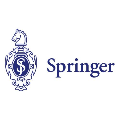Decentralized learning is widely employed for collaboratively training models using distributed data over wireless networks. Existing decentralized learning methods primarily focus on training single-modal networks. For the decentralized multi-modal learning (DMML), the modality heterogeneity and the non-independent and non-identically distributed (non-IID) data across devices make it difficult for the training model to capture the correlated features across different modalities. Moreover, modality competition can result in training imbalance among different modalities, which can significantly impact the performance of DMML. To improve the training performance in the presence of non-IID data and modality heterogeneity, we propose a novel DMML with knowledge distillation (DMML-KD) framework, which decomposes the extracted feature into the modality-common and the modality-specific components. In the proposed DMML-KD, a generator is applied to learn the global conditional distribution of the modality-common features, thereby guiding the modality-common features of different devices towards the same distribution. Meanwhile, we propose to decrease the number of local iterations for the modalities with fast training speed in DMML-KD to address the imbalanced training. We design a balance metric based on the parameter variation to evaluate the training speed of different modalities in DMML-KD. Using this metric, we optimize the number of local iterations for different modalities on each device under the constraint of remaining energy on devices. Experimental results demonstrate that the proposed DMML-KD with training balance can effectively improve the training performance of DMML.
翻译:暂无翻译



